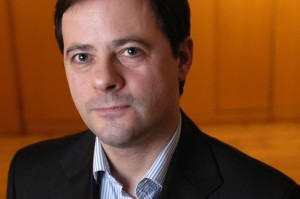Sex Education in the 21st Century: Moving from Individual to Global
Mar 2nd, 2015 | By admin | Category: Youth RightsBy Kimberly Absher, guest youth blogger, www.howmany.org.
My last post discussed sexual education in South Africa, and this week I am in the United Kingdom, where sexual education is a hot topic. I recently spoke with Simon Ross, Chief Executive of Population Matters, an organization promoting small family size and mindful consumption. They are part of the campaign for comprehensive and consistent “Sex and Relationship Education” (as it is often referred to) in the United Kingdom, a subject of renewed interest following a National Union of Students (NUS) report that revealed gaps in the current system.A whole new (digital) world for youth and sex
According to the report, students supplement their school education by learning about sex from family, friends, magazines, and pornography in large numbers. Today, youth have access to unprecedented amounts of information, which Ross said makes it “challenging for young people to know the sensible course to take.”
The British government now requires that every school disclose its Sex and Relationship curriculum for review, but as of now lacks uniform requirements. With the new sexual landscape of the 21st century, which includes things like “sexting,” pervasive sexual harassment, and the highest teenage pregnancy rates in Western Europe, U.K. critics, including members of Parliament, have said that much of the current curriculum is not equipped to deal with such issues.
Sexual violence is another issue, experienced by 1 in 5 females over the age of 16, according to Rape Crisis England and Wales. “If [students] are not taught about sex and what’s right, what’s wrong and how to negotiate it,” Ross said, “then they’re in a much weaker position to either rebuff approaches or even to complain about abuse.”
The importance of contextual and accurate education
Ross said a major criticism is that sexual education is taught in quite a mechanical way, “that is just, ‘this is what you do’ without any understanding of relationships in context that enables them to sort of negotiate personal relationships.” Another criticism is that much curricula lacks diversity, failing to teach about multiple sexual orientations.
In the face of all these factors, Ross thinks the questions we must help students know are what their rights and entitlements are, and the reality of what other people do. The latter piece is especially important in the face of pervasive pornography viewing among young people, which “doesn’t usually give an accurate representation,” Ross said.
He believes the key to successful education is giving context. Showing young people how their sexual decisions affect their futures, both personally and in terms of global challenges, is crucial. “Perhaps they want to have a career, perhaps they want to think about what their financial security is going to be like through their lives when there’s global competition and people are living much longer than they did before.”Activism in the classroom, and the bedroom
Ross says that talking about having fewer children, and having them later as part of having a prosperous and happy life can connect sexual health to population, a topic that usually only comes up in geography classes, and is often limited, so the challenges inherent in a growing population are not discussed.
Ross says the barriers to consistent quality sexual health curriculum that ties in population and other issues include teachers that aren’t properly trained in the subject matter, who have full plates in terms of what they are already required to teach, or they are worried about bringing someone in who might be disappointing.
To assist schools, Population Matters has gathered materials for educators and put them on their website. They also connect schools with speakers who can come and talk about population and sustainability, another important subject for youth.
“I think we should be talking to children about climate change, about environmental degradation, so loss of wildlife, loss of species, loss of natural habitats,” said Ross. “We should be talking to them about resource pressures, the fact the world is running out of fish, and fertile soil, and fresh water, and energy sources to some extent, and key minerals.”
He says we should also talk to youth about solutions. “And then as part of that, encouraging them to adopt sustainable, environmentally friendly lifestyles.” This includes having a smaller family, which Ross mentions is often not discussed, despite its large impact.
Kimberly is a youth guest blogger with the Institute for Population Studies. She is currently a freelance writer on topics relating to health, women’s rights, and social change. You may reach Kimberly at kimberlyabsherwrites@gmail.com.


